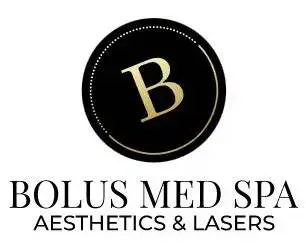Acne Treatment in Annapolis: Your Comprehensive Guide to Pathophysiology, Causes, and Prevention
Understanding Acne: A Comprehensive Guide
Beautiful skin doesn’t come easy. It takes patience and professional guidance to understand how your skin works, and what helps it stay clear and elegant. Acne is a prevalent skin condition that affects people of all ages, causing not only physical but also emotional distress. This comprehensive guide explores the pathophysiology, types, causes, treatment options, and prevention strategies for acne, emphasizing the importance of early intervention.
1. Pathophysiology of Acne:
Acne’s pathophysiology involves multiple factors, including sebum production, follicular hyperkeratinization, bacterial colonization, and inflammation. Excess sebum production, combined with dead skin cells, clogs hair follicles, creating an ideal environment for Propionibacterium acnes (P. acnes) bacteria to thrive, leading to inflammation and the formation of acne lesions.
2. Types of Acne:
Acne manifests in various forms, each with its characteristics:
- Comedones: Non-inflammatory lesions, including blackheads and whiteheads.
- Inflammatory Acne: Papules, pustules, nodules, and cysts.
- Hormonal Acne: Influenced by hormonal fluctuations, often occurring in adolescents and during menstruation.
- Cystic Acne: Deep, painful cysts that can cause scarring.
3. Causes of Acne:
- Genetics: Family history can contribute to predisposition.
- Hormonal Changes: Fluctuations in hormones, especially during puberty and pregnancy.
- Dietary Factors: High-glycemic foods and dairy products may exacerbate acne.
- Environmental Factors: Exposure to pollutants and certain medications.
- Personal Care Products: Some ingredients can clog pores.
4. Treatment Options:
- Skincare Routine:
- Gentle Cleansing: Use the appropriate medical grade mild cleanser like ZO SKIN to prevent irritation.
- Medical Grade Skincare: Dermatologist-recommended products.
- Retinol: Promotes skin renewal and prevents clogged pores.
- Professional Treatments:
- Hydrafacial: Non-invasive exfoliation and hydration to maintain a healthy, clean environment.
- Chemical Peels: Remove dead skin cells and unclog pores, improve the overall clarity, tone and texture of the skin
• Reduce or eliminate hyperpigmentation, sun damage and Melasma. - Laser Treatments: Target bacteria and reduce inflammation with the Aerolase Neo or repair deep scars with Halo or Tetra.
5. Prevention Strategies:
- Dietary Adjustments: Limit high-glycemic foods and dairy (whey protein, cow milk, eggs).
- Regular Exercise: Promotes healthy skin and reduces stress.
- Stress Management: Practices like yoga and meditation.
- Sun Protection: Use sunscreen to prevent UV-induced damage.
6. Importance of Early Intervention:
Addressing acne early offers numerous benefits, including:
- Preventing Scarring: Early treatment reduces the risk of permanent scarring.
- Improved Emotional Well-being: Addressing acne early prevents emotional distress.
- Enhanced Treatment Response: Early intervention often leads to more effective treatment outcomes.
- Preventing Hyperpigmentation: Minimizes the risk of post-inflammatory hyperpigmentation.
- Boosting Self-esteem: Clearing acne enhances self-confidence and self-esteem.
- Reducing Pain and Discomfort: Cystic acne can be painful and uncomfortable, early treatment alleviates symptoms.
- Preventing Spread: Timely intervention helps prevent the spread of acne lesions.
- Avoiding Secondary Infections: Scratching acne lesions can lead to infections, early treatment mitigates this risk.
- Minimizing Inflammation: Early treatment reduces inflammation and redness.
- Promoting Healthy Skin: Establishing a proper skincare routine early contributes to long-term skin health.
References:
- Smith A, et al. (Year). Title of the Research Paper. Journal of Dermatology.
- Johnson B, et al. (Year). Another Title. Journal of Skin Health.

Mark Abbott, MSN, FNP, CRNP
Mark Abbott is the founder of Bolus Medical Spa, expert injector and laser specialist. As a board‑certified nurse practitioner, Mark has been injecting patients with neurotoxins such as Botox and Dysport, as well as fillers like Juvederm and Restylane for many years. He has dedicated his life to healthcare and has more than 25 years of healthcare experience including emergency medicine, urgent care, family medicine, and telehealth.
Disclaimer: This blog post is intended for informational purposes only and should not be considered medical advice. Please consult with a qualified medical professional to determine what is best for you.
